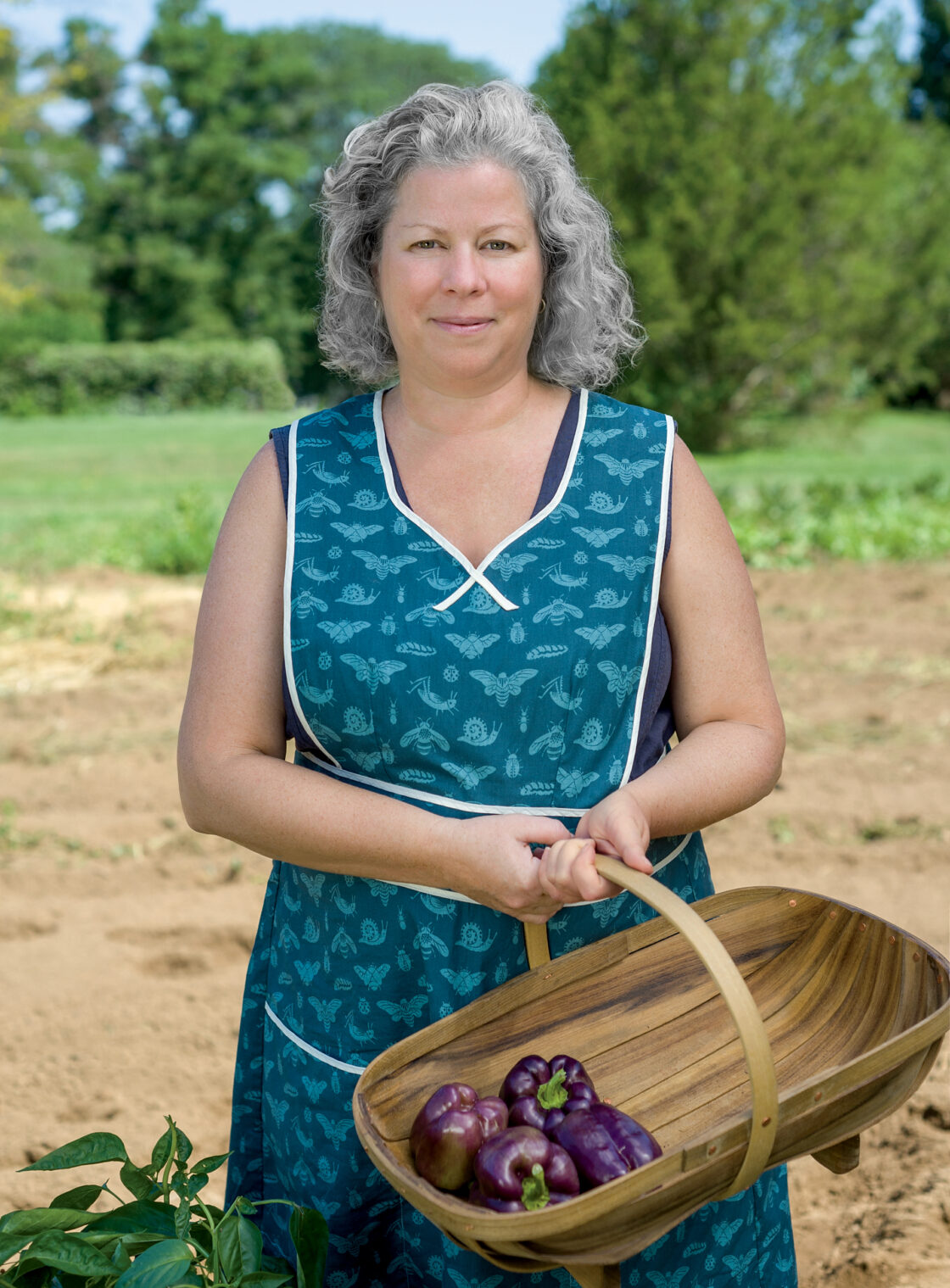Publisher Maria Rodale on the Organic Movement (Since Her Grandfather Started It)

Organic is a household word now, and no matter where you shop, you’ll find at least a few organic items on the shelves. But this wasn’t always the case. Perhaps the person best poised to share not only how far the organic movement has come since its inception, but also where it’s going, is Maria Rodale, granddaughter of organic pioneer J.I. Rodale.
The History of the Organic Movement
In 1947, organic was not a word that you heard often, and yet J.I. Rodale was already thinking about the link between healthy soil, healthy food, and healthy people. He moved from New York City to rural Pennsylvania, where he founded the Rodale family farm and the Institute that would spawn the widespread organic movement.
Maria Rodale was only seven years old when her grandfather passed away, but his legacy lived on in her household, through her father Robert and through J.I.’s many books on the topic.
“I didn’t really have a chance to discuss [the organic movement] with him,” she says, “But I’ve read all his books. […] It was surprising to me how much my writing sounded like his writing, which is a very quirky, casual, kind of funny style.”
Of course, J.I.’s approach to organic differed somewhat from what we see in the organic movement today.
“My grandfather was as much the founder of the organic movement as the health food movement,” Maria explains.
“So my grandmother used to laugh, she would demand that he give her a week’s notice before he demonize any new food, because she’d have to change everything in the house.”
Indeed, J.I.’s books included titles like “Sugar in the Criminal Mind,” and one of his earliest magazines was called, “You Can’t Eat That.”

Maria Rodale and the Family Business
Despite her heritage, Maria Rodale did not start her career at home, as easy as that may have been to do. She did not go to work for the family business right after college (even though she did join the board of the Rodale Association), preferring to work for a socially progressive political PR company in Washington D.C.
“We did a lot of ‘anti’ work, you know?” she says. “Anti-apartheid, anti-nuclear, and I had this moment where I said to myself, ‘Where is a place that I can work for something?’”
It was this idea, combined with her newfound love of gardening, that inspired Maria to rejoin the family business – and that’s when the real work began.
“People assume that because I’m born into a family that has a long history of being part of the organic movement that I just knew everything because I was born into it,” she explains. “But I actually had to go through a process of teaching myself and reading all the classic books.”
Nineteen years have since passed, and Maria Rodale has noticed several changes in the organic movement.
“I have three daughters – my oldest daughter is 34, and my youngest is 10, and when my first daughter was born, you couldn’t get organic anything, anywhere,” she says. This is a huge change from today, when, Maria says, the biggest problem is making sure there’s enough organic food to meet the demand.
The Rodale Institute is hard at work to make this a reality, with several different areas of expansion underway.
The Institute is currently setting up regional centers, so that growers in different states can have access to unique resources that are ideal for their local climates.
It has also just launched the Organic Farmers�� Association, a unique means of networking and expansion for organic farmers.
“We want to be the voice of farmers in the government,” says Maria of the endeavor.
The Institute is also planning to launch an endowment fundraising effort to continue the research goals of the Institute.
“We want to raise enough money to keep the institute healthy and alive long after the family or the company is gone,” she says.
The Institute also champions several smaller programs, such as a veteran farmer training program, to teach veterans to be farmers.
The Organic Movement Today
Organic has certainly become more widespread today, but it has also changed in appearance in the time between when J.I. founded the Rodale Institute and now, something that is perhaps best reflected in Maria’s new book, “Scratch: Home Cooking for Everyone Made Simple, Fun, and Totally Delicious.” Here, you won’t find anything resembling health food: recipes range from omelets to minestrone, spicy broccoli rabe and sausage pasta to crispy roast chicken with gravy.

“My whole life I wanted to eat things that tasted good but eat them organically, and what that often meant was that I had to learn how to make them from scratch, because they weren’t available,” she says.
Over the course of several years, she developed recipes for all of the classics, relying on natural, whole, organic ingredients. Her approach differs from her grandfather’s: Maria Rodale does not believe in excluding individual foods, but rather in finding balance, a philosophy that she attributes to growing up in the health food world.
“I saw every phase come and go, I saw all sorts of people come to my mother’s dinner table and express all different philosophies,” she says. “I quickly realized that there’s no one right answer for every single person, and it’s not black and white, but what I knew in my gut, and what I still believe, is that when food comes from nature, it’s better.”
Related on Organic Authority
Healthy Living Through Medicinal Herbs: Rodale’s ’21st Century Herbal’ Guide
Is Organic Food the Secret to Reviving Small Town America?
More than Half of Americans Value the Health Benefits of Organic Food, Poll Shows

